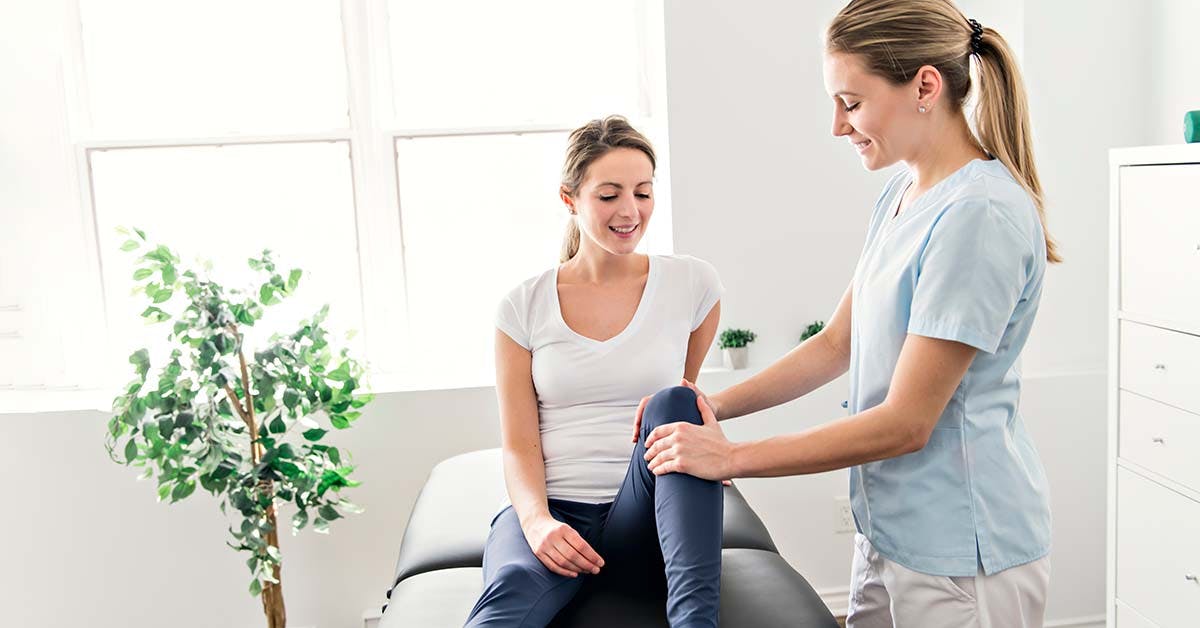18 Jul 2025
What Is the Role of a Physiotherapy Assistant?
As a Physiotherapy Assistant, you'll be part of people's recovery stories, supporting them as they get stronger. It’s not just sports injuries — that's just the tip of the iceberg.
While sports injuries might just be a small yet important part of it, you may be surprised to learn that physiotherapy goes far beyond that. Thinking about this career? Let's explore what Physiotherapy Assistants actually do and how you can get started.
What is Physiotherapy Assisting?
Physiotherapy, also referred to as physio, makes use of physical techniques to improve patients’ movement and reduce pain and stiffness. This helps with recovery after injury or illness and increases patients’ overall quality of life.
Physiotherapy Assistants are healthcare professionals working under Physiotherapists, who have trained specifically in physiotherapy.

What does a Physiotherapy Assistant do?
Operating under the direction of a physio, Physiotherapy Assistants help patients follow specific exercise and treatment programs related to injury, illness or disability-related physical issues.
Patients might be seeing a Physiotherapist to treat pain, improve circulation, strengthen muscles, restore joint mobility, improve balance and coordination or other reasons.
Responsibilities might include:
Setting up equipment
Working on exercises with patients
Showing patients how to use mobility aids
Applying therapeutic techniques as directed by the physiotherapist
Helping patients prepare for treatment (including helping with dressing and undressing)
How much does a Physiotherapy Assistant make?
A Physiotherapy Assistant’s salary in Australia ranges anywhere between $49,000 and $68,000 a year (Payscale, 2025). This means you can earn between $24 and $30 per hour, depending on your qualifications and experience.

Where do Physiotherapy Assistants work?
Physiotherapy is one of Australia's most in-demand healthcare services, which means Physiotherapy Assistants are needed across heaps of different settings. You'll find opportunities everywhere, like hospitals, private practices, fitness and sports centres, GPs, workplaces and in the community.
Top traits of a Physiotherapy Assistant
Some things you can learn in school, and others are ingrained. As a Physiotherapy Assistant, you’ll need some soft skills to really make a difference in people’s lives. These include:
Patience and compassion
Physiotherapy Assistants must have compassion and patience, especially because they often work closely with people with physical disabilities and patients in hospitals or clinics. You need to be able to empathise with clients to ensure they feel comfortable in vulnerable situations.
Strong communication skills
One of the most important roles of a Physiotherapy Assistant is to understand a client’s injury or condition to support their treatment plan. Communication is key in this hands-on, client-centred career. As a Physiotherapy Assistant, you’re not only responsible for communicating effectively with clients — you’ll also need to follow the directions of the Physiotherapist and other health professionals in the client’s care team.
Ability to encourage and motivate
While great Physiotherapy Assistants understand treatment takes patience and perseverance, they also know when it’s appropriate to give their patients a gentle nudge toward progress. Patients can be more likely to carry out their rehabilitation plan with some external encouragement and motivation, so it’s important to know how to be firm while respecting their limits.
Allied Health Assistant Physiotherapy Course
If you love the idea of helping people regain their independence, becoming a Physiotherapy Assistant might be just what you're looking for! Here's what you need to study to get into physiotherapy assistance.
HLT43021 Certificate IV in Allied Health Assistance - Physiotherapy and Occupational Therapy Focus
Our HLT43015 Certificate IV in Allied Health Assistance - Physiotherapy and Occupational Therapy Focus will equip you with the knowledge and skills required to assist in the provision of physiotherapy and other allied health programs, interpret basic medical terminology and comply with infection prevention and control policies.
This course consists of a combination of online theory and practical work placement, giving you real-world experience to prepare you for the fast-paced healthcare industry.
Become a Physiotherapy Assistant with Foundation Education
Foundation Education has been training Australia's healthcare workforce for over 20 years. With dedicated support from enrolment to graduation and flexible online study, starting your physiotherapy assistant career is easier than you think.
If you’re interested in becoming an Allied Health Assistant focusing in physiotherapy, kick-start your career as a Physiotherapy Assistant with our HLT43015 Certificate IV in Allied Health Assistance - Physiotherapy and Occupational Therapy Focus course. Call us at 1300 616 197 or enquire now to speak to one of our Careers Advisors for more information today!
Related Articles

Allied Health Assistant skills employers need
Discover the allied health assistant skills physio and OT teams rely on and how nationally recognised study can launch your healthcare career.

Considering an Allied Health Career? Here’s How to Get Started as an Assistant
Wondering if allied health is the right career path? Find out what it involves and how to become an assistant in this growing healthcare field.

Proud member of

© Foundation Education | RTO Number 22557
